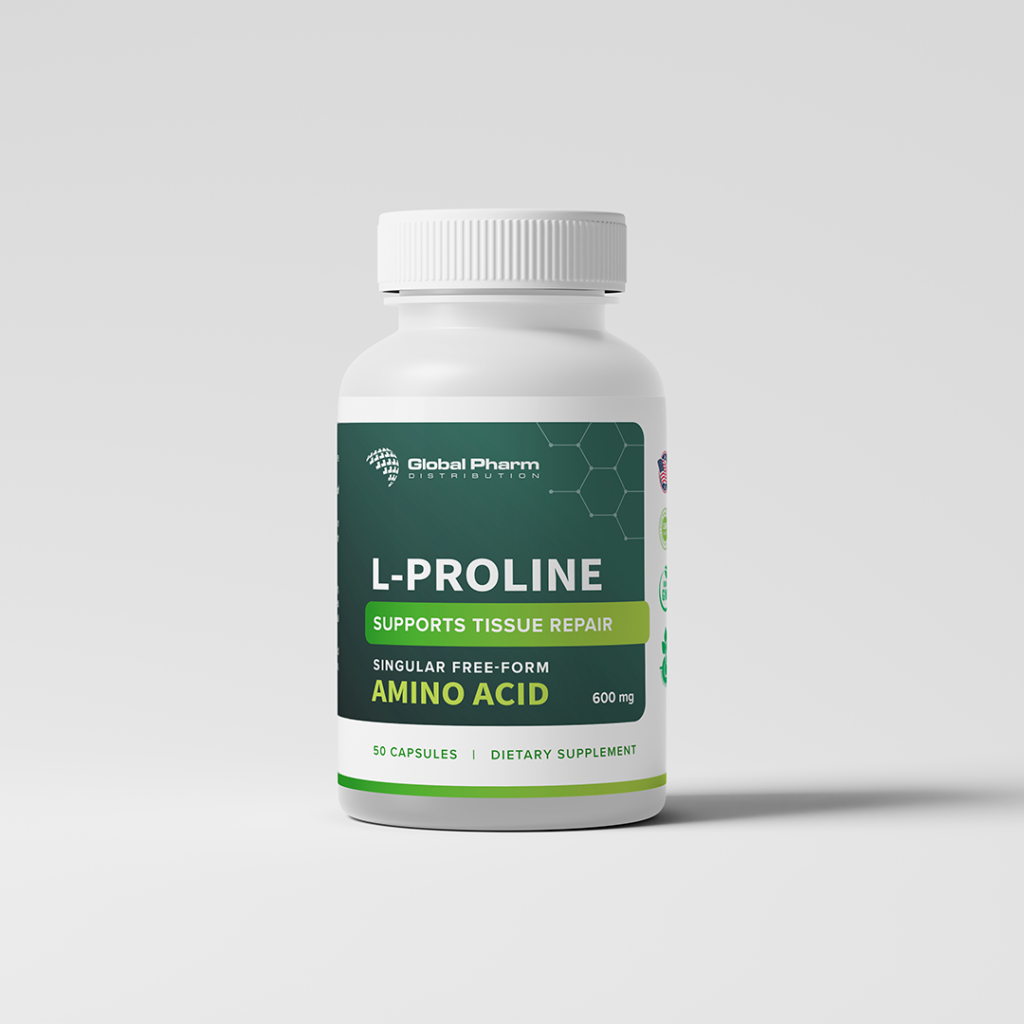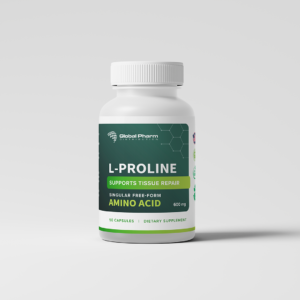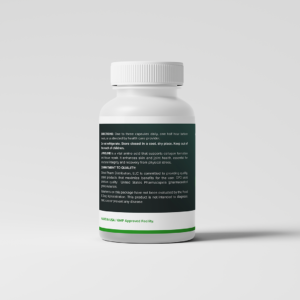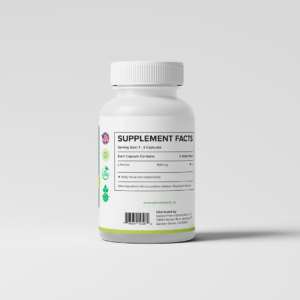Description
NDC: 53335-086-11 (capsule), 53335-087-29 (powder)
Weight: 4 Oz
L-Proline is a non-essential amino acid that plays a vital role in improving skin texture and aiding collagen formation, helping to mitigate collagen loss during aging. Found in collagen at about 15% concentration, it serves as a precursor to hydroxyproline and hydroxylysine—compounds essential for collagen structure—with ascorbic acid facilitating their conversion. L-Proline also supports the maintenance of muscles, joints, and tendons, and contributes to tissue repair and wound healing. Additionally, it may assist in DNA synthesis, supporting cellular health. While its benefits for skin and connective tissue are well-supported, its role in preventing aging requires further research. Studies highlight its importance in collagen synthesis and tissue integrity (e.g., Wu 2009).
L-Proline is particularly beneficial for individuals seeking to support skin elasticity, joint health, or recovery from tissue damage. Manufactured using premium pharmaceutical-grade materials in a GMP-approved facility in the USA, L-Proline is free of fillers, binders, or coloring agents, with no known side effects when used as directed.
Directions: Take 1-3 capsules daily or as advised by your healthcare provider. Pair with vitamins and minerals; GPD’s MVM (Multivitamin) is recommended. Powder equivalent: 1/4 level teaspoon per capsule.
Key Benefits
- Supports Collagen Formation: Acts as a precursor to hydroxyproline for skin and connective tissue.
- Promotes Joint and Tendon Health: Maintains structural integrity.
- Aids Tissue Repair: Enhances wound healing and skin maintenance.
References
- Wu G. (2009). “Amino acids: Metabolism, functions, and nutrition.” Amino Acids, NIH.
- Albaugh VL, et al. (2017). “Proline metabolism in health and disease.” Amino Acids, NIH.
- Shoulders MD, et al. (2009). “Collagen structure and stability.” Annual Review of Biochemistry, NIH.
- Li P, et al. (2009). “Amino acids and immune function.” British Journal of Nutrition, NIH.
These statements have not been evaluated by the Food and Drug Administration. This product is not intended to diagnose, treat, cure, or prevent any disease. Consult a doctor or medical professional before use, especially if pregnant, nursing, or taking medications.
Additional Information The following points provide insight into L-Proline levels and their association with various health conditions, reflecting its role in metabolism:
- Typical Range (per capsule): 500-1000 mg (approximate, based on standard supplements; exact dose not provided).
- Conditions Associated with Low Levels:
- Collagen disorders (e.g., poor skin elasticity, joint stiffness)
- Wound healing delays (e.g., post-surgical recovery)
- Aging-related tissue degeneration
- Conditions Associated with High Levels:
- Excessive supplementation (rare, may cause digestive upset)
- Kidney strain (from high amino acid load)
- Metabolic imbalances (e.g., hyperprolinemia)
- Notes: L-Proline supports collagen synthesis, joint health, and tissue repair, with potential benefits for skin aging prevention. Low levels may indicate tissue or healing issues, while high levels could result from over-supplementation. These associations are correlative and require further research for causal confirmation. For more technical information, please click here. Consult a doctor or medical professional before use, especially if pregnant, nursing, or taking medications.
 Global Pharm Distribution, LLC
Global Pharm Distribution, LLC




